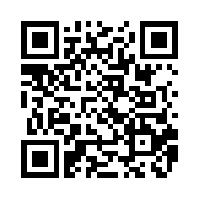Abstract
The implications of a consistent problem-historical method of philosophical historiography for gender distinctions and relations. Reconnoitring the possible implications of the consistent problem-historical method of Dirk H.Th. Vollenhoven (1892–1978) to attain more clarity on the issue of gender and gender relations is the main aim of this investigation. In passing, it also indicates how the results obtained by this Christian philosopher’s careful analysis of Western ontologies and anthropologies may alleviate the deficiencies in the otherwise ground-breaking study of sister Prudence Allen. Allen’s study was discussed in a previous article in this journal. The introductory section explains how Vollenhoven himself viewed the difference and relation between God, his laws and his creation. The next section discusses the main contours of his historiography of philosophy, viz. his division of the history of philosophy intothree main periods (pre-synthetic, synthetic and anti-synthetic), a diversity of normative time-currents and three basic cosmological problems (consistency versus change, unity versus diversity and universal versus individual). From the great number of anthropologies, the third section selects a few examples to illustrate their possible implications for the problems related to sexuality and gender. The conclusion tries to pinpoint Vollenhoven’s own anthropology in order to ascertain why he, in spite of his thorough and profound exposure of the ontological and anthropological foundations of Western thinking, did not more explicitly express himself about their implications for gender issues.Copyright information
- Ownership of copyright in terms of the Work remains with the authors.
- The authors retain the non-exclusive right to do anything they wish with the Work, provided attribution is given to the place and detail of original publication, as set out in the official citation of the Work published in the journal. The retained right specifically includes the right to post the Work on the authors’ or their institutions’ websites or institutional repositories.
Publication and user license
- The authors grant the title owner and the publisher an irrevocable license and first right and perpetual subsequent right to (a) publish, reproduce, distribute, display and store the Work in any form/medium, (b) to translate the Work into other languages, create adaptations, summaries or extracts of the Work or other derivative works based on the Work and exercise all of the rights set forth in (a) above in such translations, adaptations, summaries, extracts and derivative works, (c) to license others to do any or all of the above, and (d) to register the Digital Object Identifier (DOI) for the Definitive Work.
- The authors acknowledge and accept the user licence under which the Work will be published as set out in https://creativecommons.org/licenses/by/4.0/ (Creative Commons Attribution License South Africa)
- The undersigned warrant that they have the authority to license these publication rights and that no portion of the copyright to the Work has been assigned or licensed previously to any other party.
Disclaimer: The publisher, editors and title owner accept no responsibility for any statement made or opinion expressed by any other person in this Work. Consequently, they will not be liable for any loss or damage sustained by any reader as a result of his or her action upon any statement or opinion in this Work.
In cases where a manuscript is NOT accepted for publication by the editorial board, the portions of this agreement regarding the publishing licensing shall be null and void and the authors will be free to submit this manuscript to any other publication for first publication.
Our copyright policies are author-friendly and protect the rights of our authors and publishing partners.

